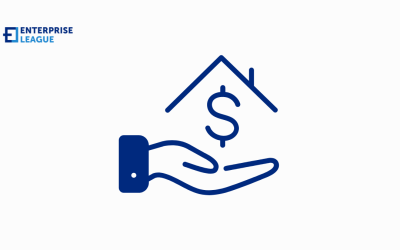Because many think that entrepreneurs and investors have similar responsibilities, there is often confusion between these two roles. An entrepreneur is a person who launches a company intending to invent or innovate a particular good or service while being willing to accept all the risks of failure to generate money. An investor is a person or a group that provides capital to a business in exchange for the expectation of future gains and profits.
An entrepreneur concentrates on his company and related operations. Profits are an entrepreneur’s primary goal. In contrast, an investor puts his money into an existing company. When a business is profitable, an investor receives a predetermined amount of the dividend.
These business profiles differ slightly, and we will explain what are the main differences between investor vs entrepreneur profiles as well as the advantages and disadvantages of each of them.
Main differences in investor vs entrepreneur
Both profiles share the same levels of ambition, skill, and risk tolerance, but also they have some differences. So, let’s take a look at what makes different investor vs entrepreneur.
Business idea
In both of them, the main focus is working around business opportunities and ideas but the way of the approach is a bit different. An investor can concentrate on current business ideas, whereas an entrepreneur may focus on developing new business ideas.
Connection
It’s very common for these two profiles to interact with each other during making business. The entrepreneur typically contacts investors to finance the equity of his business, investors seek out entrepreneurs who have the potential to generate returns on their capital through profitable investments.
Investments
Regarding investing, both of these profiles have different approaches. An investor primarily invests money in the business project, whereas an entrepreneur adds ideas and passion to the business project, although may also invest money later.
Personality
Even though they have the same sense of starting a business idea, they have different personalities. An entrepreneur is passionate and dedicated to his idea and would stay to it despite having losses or a period of breakeven. An investor is practical and rational about a concept and may quit it when losses occur.
Focus
Just like with character and their focus is entirely different when it comes to developing a business idea. An entrepreneur tends to be more upbeat about his company, which makes him an optimistic profile, whereas an investor is more negative and more focused on what could go wrong which makes him a pessimistic profile.
Prioritizing
When it comes to prioritizing things and putting more emphasis on something, these two profiles are quite different, because they prioritize other aspects of their businesses. Entrepreneurs prioritize the qualitative aspects of their companies, whereas investors prioritize the quantitative or financial aspects.
Return on investment
They have different expectations when it comes to initial investment and returns on investment. An investor expects more in terms of return on investment when investing money in a business than an entrepreneur does when investing initial capital at the beginning of a business.
Calculations
The entrepreneur and the investor make initial calculations, but the main focus differs. Investors typically calculate the return on investment and arrive at an approximate or estimated value, whereas entrepreneurs focus on calculating the most precise amount.
Initial capital investment
When it comes to investing money in the early stages of business development, entrepreneurs have advantages over investors. While investors need capital to begin investing, entrepreneurs can launch their businesses without it.
Management
Although both can be business owners, an entrepreneur controls the company and is more familiar with its operations, sales, and even the emotions and behaviors of its staff and customers, whereas an investor may just be familiar with the company’s financial and quantitative statistics.
Advantages of being an entrepreneur
Like any other profession, entrepreneurship has both advantages and disadvantages. Here, are some of the advantages that entrepreneur faces.
Own boss
Being your boss and being able to do whatever you want gives you a great deal of freedom, which is a key benefit of being an entrepreneur. Of course, you are in charge of how the business performs, but you still have the freedom to choose when you want to work and when you want a break.
Flexibility
Because an entrepreneur doesn’t have to stick to a strict schedule, you can have flexible working hours whenever you like. If you don’t want to go to the office, you can work from home instead. As you can spend more time with them and can take better care of your children, this is advantageous for both you and your family.
More money
Disadvantages of being an entrepreneur
Here, are some of the disadvantages that entrepreneurs have.
Lonely routine
Since you have to make all of your own decisions, becoming an entrepreneur is typically a lonely endeavor. So if you are not the type of person who likes to work solo, then think twice before you make a decision and enter the business world as an entrepreneur.
Financial Stress
Because there are so many potential risks, you will occasionally experience financial stress. Also, because of how competitive entrepreneurship has grown, businesses prefer to hire entrepreneurs who are less expensive.
Health issues
Poor health goes hand in hand with the race of chasing money. It’s common to hear that entrepreneurs experience high levels of stress, which harms their health. Throughout their careers, many entrepreneurs experience burnout or depression, which is rarely talked about in public, but you should be aware of it.
Advantages of being an investor
Similar to entrepreneurship, investing has its advantages and disadvantages, some of the advantages are.
Accurate capital estimation
Simple routine
Investing is the least active way to get money. It’s appropriate for you if you are interested in marketing but don’t want to devote your entire day to it or make it a regular part of your schedule.
Regular income
If you are retired or on the verge of retiring, you will be seeking a source of income that you can use to pay your bills. Being an investor, you can therefore put your money to good use by buying stocks, bonds, and real estate.
Disadvantages of being an investor
Here, are some of the disadvantages that investors face.
Difficult to start with
Being an investor can be challenging initially, as it involves risking your capital before making a profit.
Risks
As an investor, you must be prepared to deal with any risks, which might cause serious problems because you have already made significant investments and will be greatly disturbed if you suffer a loss.
Slow operation
As an investor, you must wait a long time before your company expands or the price of shares rises so that you may sell them. You must have patience in a long run.
Conclusion
Even though these two profiles share the same business background, still, their vision is quite different. Working as an entrepreneur or investor has advantages and disadvantages. In entrepreneurship, the risk is higher as entrepreneurs have multiple responsibilities and must work diligently to achieve profitability. Compared to an entrepreneur, an investor will not have as many duties or as much work to do, but it costs a lot of money to start investing. Ultimately, the choice between being an entrepreneur or an investor depends on your personal preferences and circumstances.
More must-read stories from Enterprise League:
- The relevance of print marketing and how to make it work for your business.
- Tactics for using TikTok marketing for your small business successfully.
- Importance of online privacy laws in the digital era and how they protect us.
- Some of the worst business ideas you should steer clear from.
Related Articles
How direct lenders simplify mortgage processes for homebuyers
Eliminating the requirement for intermediaries, direct lenders are changing housing market by offering effective practices that simplify mortgage acquisition.
PDFs and the debate between tradition and innovation
Curious about the future of PDF? Learn about its integration with new technologies and explore some practical PDF tips to leverage all the power of this format!
The 10 Ds of entrepreneurship: Why are they important?
Are you familiar with the 10 Ds of entrepreneurship? Let’s see if you possess some or all of them that will launch you for success.
How direct lenders simplify mortgage processes for homebuyers
Eliminating the requirement for intermediaries, direct lenders are changing housing market by offering effective practices that simplify mortgage acquisition.
PDFs and the debate between tradition and innovation
Curious about the future of PDF? Learn about its integration with new technologies and explore some practical PDF tips to leverage all the power of this format!






